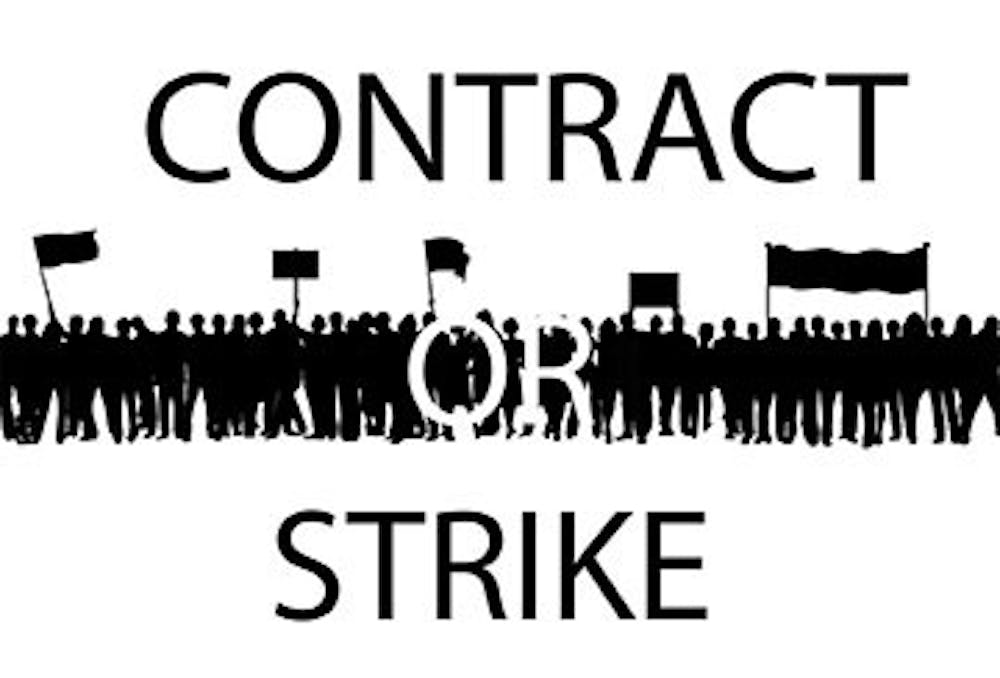Faculty and coaches of Pennsylvania’s 14 state universities plan to hold a vote with their union in mid-September to decide whether to strike, because both parties cannot agree on a contract with the state system.
For more than 14 months, members of the Association of Pennsylvania State College and University Faculties (APSCUF) have been negotiating with the Pennsylvania State System of Higher Education (PASSHE) to renew their contracts, which include work requirements, benefits and salary.
Members of APSCUF, which represents about 5,500 faculty and coaches in the state system, held an emergency conference call on Thursday, approving a strike-authorization vote. The vote will take place from Sept. 7–9 for faculty members, and from Sept. 14–15 for coaches. If APSCUF decides to strike, classes will be canceled for about 100,000 students in PASSHE until the strike ends.
Classes will proceed as scheduled this week and a strike authorization vote does not necessarily mean classes will be disrupted, PASSHE administrators said in a message to students last week. Holding strike-authorization votes are normal, according to the message, and APSCUF members have never voted to strike before. The message states the effects of a strike would be devastating for students.
SU President George “Jody” Harpster said at the end of last semester the university is preparing a strike response plan. PASSHE’s administrators and the 14 universities will each have their own plans to put in place if APSCUF strikes. The plan includes making sure the needs of students are met while they wait for the strike to end. But students will not be able to communicate with professors via campus phones or email, have advising meetings for scheduling and other concerns and professors will not advise club members, according to APSCUF.
After the strike ends, faculty and SU’s administration will work together to ensure students can complete their classes, Harpster said. This may mean extending the semester, cutting fall break and adding evening classes.
The next round of negotiations is planned for Aug. 31, according to PASSHE, and it is the last session scheduled before APSCUF holds its vote to strike, with one exception. The two parties will meet on Sept. 8 for a separate discussion on the healthcare plan, according to information on PASSHE’s website.
“Our faculty and coaches clearly feel that the state system has not negotiated fairly,” APSCUF President Kenneth Mash said last week. “They are more interested in playing games than negotiating seriously.
“It is completely unfair to our students for the state system to continue to drag this process out. Eventually, there will be a contract. We don’t know what the state system gains by continually creating distractions.”
One of several problems APSCUF has with PASSHE’s proposed contract is the introduction of a reduced healthcare plan, according to a press release. Other unions working for PASSHE accepted the healthcare plan, and PASSHE offered to pay some faculty members $600 to accept it — APSCUF refused.
The plan could charge faculty members thousands of dollars more to make up for what the healthcare coverage leaves out, APSCUF stated in a press release Friday.
Having graduate students teach, lowering the salary of adjunct professors, increasing temporary faculty and use of online courses are some other points of disagreement, according to Mash and APSCUF press releases.
PASSHE has to be realistic with how it manages its state funding and with how it will close its deficit, said Kenn Marshall, PASSHE’s media relations manager. Marshall said faculty salaries continue to be in the Top 10 to 15 percent compared to faculty across the nation.
“We have been bargaining in good faith with APSCUF in an attempt to reach a deal that is fair to everyone — most important, to our students,” Marshall said last week.


The Slate welcomes thoughtful discussion on all of our stories, but please keep comments civil and on-topic. Read our full guidelines here.